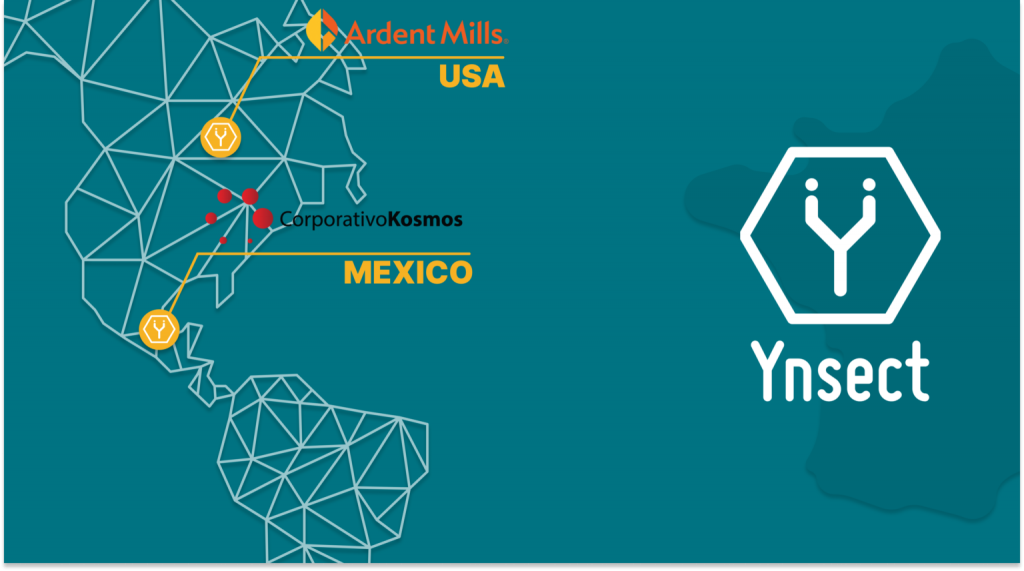Insect-Based Ingredients Maker Ynsect Expands In North America
France’s Ynsect has announced deals to build insect ingredient production sites in the United States and in Mexico as the firm kicks off what it says will be the world’s largest insect farm.

Ynsect breeds mealworms that produce proteins for aquaculture, livestock, pet food, fertilisers and human nutrition.
The company signed the U.S. agreement with flour milling company Ardent Mills to build a factory next to one of its U.S. MidWest sites – yet to be determined – by the end of 2023.
The two new sites will cost at least €100 million, each and output should eventually rise to about 200,000 tonnes of insect-based ingredients per year, Ynsect CEO Antoine Hubert told Reuters.
Ardent Mills, a joint venture between ConAgra Foods, Cargill Inc and CHS Inc, would supply milling by-products to feed the insects.
In Mexico, Ynsect teamed up with food and general services provider Corporativo Kosmos. The factory would be located near Mexico City and export to the U.S. market.
The company is discussing about 10 other deals in Europe, the Middle East and Asia and expects additional agreements next year.
Related news
Rakuten and L’Oréal Japan partner to deliver personalised beauty solutions
The partnership will leverage Rakuten’s AI and marketing data alongside…
Read more >NAK and Hungarian Lawyers Association strengthen cooperation
The President of the National Chamber of Agriculture (NAK), Zsolt…
Read more >SPAR International And Circana Announce Strategic Partnership
SPAR International, the food retail chain, has announced a key…
Read more >Related news
Recognition of Consumer Protection Excellence: Honoring the Best of 2024
This year’s outstanding consumer protection officers and special award recipients…
Read more >The Joy of Giving! – SPAR stores collect non-perishable food for people in need
The Hungarian Maltese Charity Service and SPAR Hungary have launched…
Read more >KSH: industrial production decreased by 0.2 percent in October
In October, the volume of industrial production fell by 0.2…
Read more >








